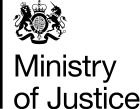The United Kingdom’s Ministry of Justice is responsible for the country’s justice system, ensuring that it is fair, transparent, and accessible to all.
The Lord Chancellor, Alex Chalk KC MP, heads the Ministry of Justice as the Secretary of State for Justice.
The Ministry of Justice role encompasses a wide range of responsibilities, including the provision of legal services, the management of the court system, and the oversight of the country’s prisons and probation services.
The Ministry of Justice is not responsible for the regulation of the legal profession in England and Wales. This function is carried out by the independent regulatory bodies, such as the Solicitors Regulation Authority and the Bar Standards Board
The history of the Ministry of Justice can be traced back to the Magna Carta
The Magna Carta, also known as the Great Charter, is one of the most important legal documents in history. It was originally issued by King John of England in 1215, in response to the demands of rebellious barons who sought to limit the power of the monarch.
The Magna Carta established the principle that everyone, including the king, is subject to the law, and it protected basic rights such as the right to a fair trial and the right to due process.
Over time, the Magna Carta was revised and reissued by various kings, and it became a symbol of individual liberty and the rule of law. The version of the Magna Carta that is most commonly referenced today is the one issued by King Edward I in 1297.
Of the original 63 clauses in the Magna Carta, only four have survived into modern law. These are clauses 1, 13, 39, and 40.
Clause 1 establishes the principle that the English Church is free from interference by the king. It states that “the Church of England shall be free, and shall have its rights undiminished, and its liberties unimpaired.”
Clause 13 provides for the seizure of property by the king only if it is done in accordance with the law. It states that “No man shall be taken or imprisoned, or disseised of his freehold, or liberties, or free customs, or outlawed, or exiled, or in any way destroyed, nor will we go upon him nor send upon him, except by the lawful judgment of his peers or by the law of the land.”
Clause 39 establishes the principle of due process, stating that “No free man shall be seized or imprisoned, or stripped of his rights or possessions, or outlawed or exiled, or deprived of his standing in any other way, nor will we proceed with force against him, or send others to do so, except by the lawful judgment of his equals or by the law of the land.”
Finally, Clause 40 establishes the right to a fair trial, stating that “To no one will we sell, to no one will we deny or delay, right or justice.”
Together, these surviving clauses represent the enduring legacy of the Magna Carta, and they continue to influence modern legal systems around the world.
Check out our article on the highly questionable Sussex Family Justice Board and make up your own mind.
We recommend you should always seek formal legal advice if required, from a qualified and reputable lawyer (solicitor or barrister).
We have a number of links to Free Legal Resources and Legal Organisations on our Free Legal Advice , Legal Aid and Pro Bono pages.
Read the reviews of Gavin Howe Barrister
“He is awful, underhanded and should not be practising law!”
Latest Articles
- What is a Paralegal ?A paralegal is a legal professional who performs tasks that require knowledge of legal concepts but does not hold the… Read more: What is a Paralegal ?
- What is a Judgment ?A judgment, also known as a judicial decision or court ruling, is the final decision made by a court of… Read more: What is a Judgment ?
- What is an Adverse Inference ?Adverse inference is a legal principle that plays a significant role in various areas of law, including criminal, civil, and family law. It arises… Read more: What is an Adverse Inference ?
- BarristersA barrister is anyone who has been Called to the Bar in England and Wales. For a barrister to offer… Read more: Barristers




